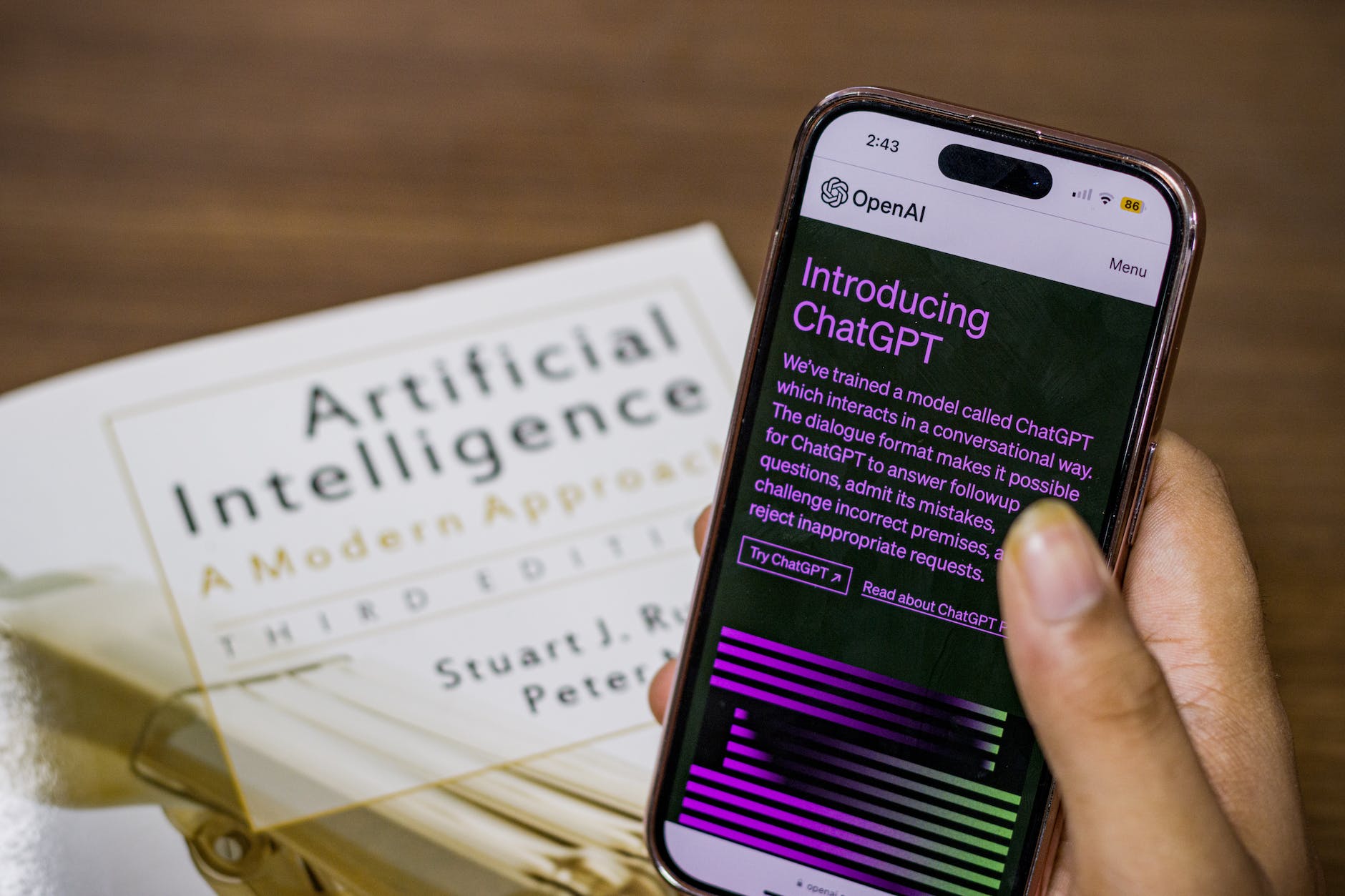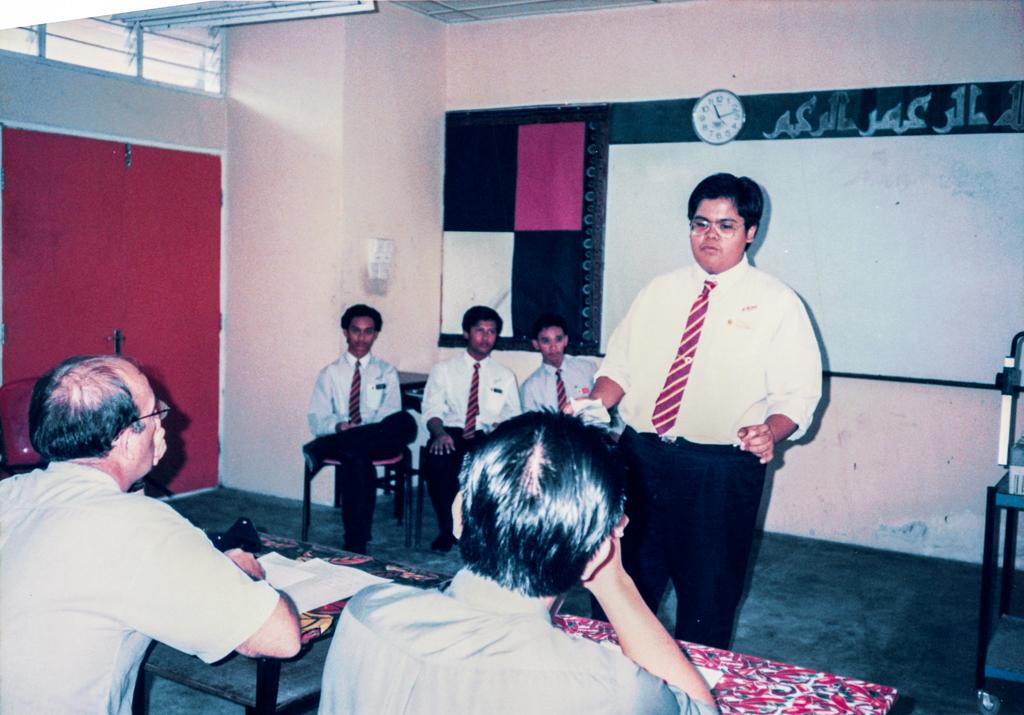
In the last 12 months, there have been quite a few artificial intelligence technologies or AI released to the public. In my daily conversation with colleagues both near and far, not one day the topic of AI has not been raised. Name it, there are just so many AIs out there, be it something that is so close to us like Siri, all the way to the spectacular ChatGPT and Midjourney. In fact, I’ve been using ChatGPT so often that I feel compelled to write this article on my blog.
Artificial intelligence is intelligence—perceiving, synthesizing, and inferring information—demonstrated by machines, as opposed to intelligence displayed by humans or by other animals.
Wikipedia
In reference to ChatGPT, it has had quite a big impact on me. In fact, in reference to this blog, here is my previous workflow in posting my usual photo (whenever I am free).
- Process photo on Lightroom
- Write a 30 words lousy description of the photo.
- Post the photo on my blog.
And now with ChatGPT, here is my much-improved workflow:
- Process photo on Lightroom
- Write a 30 words lousy description of the photo.
- Ask ChatGPT to expand the description.
- Continue to refine the answers from ChatGPT.
- Ask ChatGPT to come out with SEO keywords.
- Ask ChatGPT to come up with excerpts for my post.
- Key into WordPress and publish!
Soon, I don’t even need to write the lousy description, because an AI tool can interpret the photo and do it on its own!
Based on the process above, certainly, it seems to be I am doing a lot more, but in fact, the extra steps that I’ve taken have improved the quality of my posting. So much so, that now it does look like an actual blog! True enough, the reason why it seems to be that the reason why my workflow is so short is that I am super lazy, and don’t bother writing anything. Very much different from the early days when I had so much more time and motivation. In fact, honestly – I have no idea why I continue to write the blog when there are barely any visitors to it!

The truth of the matter is that, if I have spent time writing properly, my writing will improve very much, and my writing abilities will be so good. The blog has been running for more than a decade, and soon it’ll be two decades. I guess – it is important for me to write more! Or do more PowerPoint presentations. Something that I think I am good at!
Taking a step back, if I have this tool in school or college, I’ll be doomed. Because I will certainly use it for a lot of my essays and work. Seriously, why do I bother to spend time writing when I can just use a tool for it? In fact, back then when I first wrote my first thesis (and only), I used a tool called Wordstar. It’s so ancient, unlike the modern tools which have a lot of capabilities. Like the one that I am using now, Microsoft Word – can check in real-time the grammar, conciseness, spelling etc. Back then, don’t bother! That particular thesis certainly has helped me to be better at my work English, though it is not perfect.

So – I pray that the new generation will be able to balance the use of the tool that they have versus learning. Otherwise, we will see a generation that is very much behind because the heavy reliant on technology to do what they need to do. Quote for example, back then when I was a programmer, I had to visit bookstores to look at books to figure out ways where I can resolve problems. Now – the resources are ample because everything is available on the internet! A quick search in Google generally would be able to return great results.
And, for reference, here is an improved write up of the above that is generated from ChatGPT!

“Artificial intelligence is the new electricity,” opined Andrew Ng, a renowned AI expert. Indeed, the phenomenon of AI, an amalgamation of perceiving, synthesizing, and inferring information demonstrated by machines, stands in stark contrast to human or animal intelligence. Over the past year, we’ve seen an explosive proliferation of AI technologies released to the public, making a significant impact on our daily lives.
My conversations with peers, whether nearby or at a distance, rarely conclude without a mention of AI. From commonly encountered technologies like Siri, to more sophisticated models such as OpenAI’s ChatGPT and Midjourney, AI is increasingly ingrained in our daily routines. In my case, I found myself so immersed in the practicalities of ChatGPT that it inspired this blog post.
To demonstrate, let’s juxtapose my previous blog-posting workflow with the current one, which has been significantly optimized by ChatGPT. Initially, my procedure was simple:
- Process a photo on Lightroom.
- Compose a brief, 30-word description.
- Post the photo and its description on my blog.
With the introduction of ChatGPT, the process expanded but also enhanced considerably:
- Process photo on Lightroom.
- Draft a 30-word description.
- Ask ChatGPT to enrich the description.
- Refine ChatGPT’s output.
- Use ChatGPT for generating SEO keywords.
- Request excerpts for the post from ChatGPT.
- Input everything into WordPress and publish.
And the future holds even greater promise – AI tools will soon interpret photos and generate descriptions automatically, rendering my initial input unnecessary.
Although the steps increased, the overall quality of my posts improved dramatically, enhancing my blog’s appearance and readability. This, despite my self-confessed laziness and dwindling motivation, especially in the face of negligible visitor numbers.
This evokes a poignant observation by Hemingway: “We are all apprentices in a craft where no one ever becomes a master.” The essence of writing, or any craft, lies in its practice. In two decades of running this blog, I realized that regular writing could enhance my skills remarkably.
However, there’s an undercurrent of apprehension here. If such tools were available during my school or college days, I might have depended on them excessively, bypassing the painstaking but rewarding process of honing my writing skills. In my university days, I used a primitive tool called Wordstar to write my thesis. It lacked the advanced capabilities of modern tools like Microsoft Word, which offers real-time checks on grammar, conciseness, spelling, etc. However, it contributed to my command over English at work, despite its imperfections.
The crux lies in balance. The next generation needs to strike a careful equilibrium between leveraging AI tools and learning organically. Otherwise, we may witness a generation lagging due to over-reliance on technology. I recall my programming days when I had to comb through bookstore shelves for solutions, while today, a quick Google search suffices. According to Statista, as of 2021, over 90% of the global population has access to the internet.
This shift is a double-edged sword, providing us with immense resources but threatening our innate ability to problem-solve. The balance, thus, remains pivotal. After all, as Einstein mused, “I fear the day that technology will surpass our human interaction. The world will have a generation of idiots.” Let’s ensure we harness technology to complement, not replace, our innate abilities.
